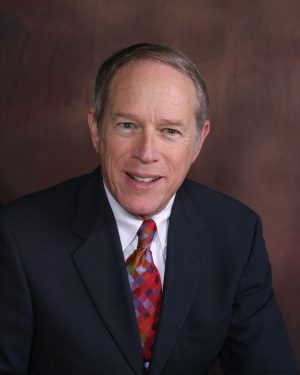
Speaker: Leonard Marks, MD
Affiliation: Department of Urology
Transformation of Prostate Biopsy, 2010-2020, A True Story of How Bioengineers are Improving Lives for Millions of Men (and are becoming rich in the process)
Prostate cancer is the commonest solid tumor and the second commonest cause of death among men in the U.S. Approximately 180,000 new cases and 30,000 deaths from prostate cancer occur annually in this country. Since the 1980s, diagnosis of the cancer has been made by ultrasound-guided biopsy. In this procedure, which involves random placement of biopsy needles into the organ, the hope is that if cancer is present, one of the biopsies would find it. Through this rather primitive approach, many cancers were found, and many operations were performed; however, a lot of the tumors detected were insignificant, and it soon became clear that over- treatment was becoming a major problem. On the other hand, serious tumors were often missed by ‘blind’ biopsy.
By the early 2000s, MRI had advanced to the point where many cancers could be imaged within the prostate. MRI helped determine which cancers were potentially serious and needed treatment and which ones were indolent. A decade later in 2008, a device was approved by the FDA which allowed fusion of stored MRI images with real-time US, thus opening the possibility for precision (targeted) prostate biopsy in a doctor’s office. As a result, prostate cancer is now being diagnosed early and precisely, resulting in effective new treatments with much less morbidity than traditional surgery or radiation.
The transformation actually started in 2009 at UCLA, when urologists, radiologists, pathologists, and biomedical engineers joined together in a collaboration that has made the university the leader in targeted prostate biopsy. From this collaboration have emerged 3 PhD degrees in bioengineering; 60 peer-reviewed publications; more than 100 presentations at scientific meetings; and three R01 grants from the National Cancer Institute. UCLA truly ‘owns’ targeted prostate biopsy. The next phase, targeted focal therapy of prostate cancer, a natural extension of targeted biopsy, is now beginning. Focal therapy offers the promise of cure without the side effects of traditional treatments, i.e., surgery or radiation therapy. And very recently, through the UCLA extended family, millions were raised, a new company was formed, technology was out-licensed, and those same engineer-scientists who were educated here are off becoming successful on their own.
The talk, which is based on the above story, tells how offshoot chapters of the innovation are continuing and details various opportunities that have come to light.
Biography:
Following a lengthy career as a private urologic practitioner and founder of a non-profit research organization (Urological Sciences Research Foundation, 501c3), I returned to the full-time faculty at UCLA in 2009. Two ideas came with me: (1) a plan for Active Surveillance (A.S.) of low-risk prostate cancer, and (2) the original idea for employing MRI/US fusion for targeted prostate biopsy. The mission I proposed at UCLA in 2009 centered upon hopes, just on the horizon, for imaging cancer within the prostate; performing targeted biopsy; using that information to improve the rationality of prostate cancer treatment; and exploring focal therapy. The program which began in 2008 has become one of the largest and most productive in the world. The credit goes not to me alone, but to the team of dedicated co-workers from various disciplines that were assembled to create the success we have enjoyed. The team—including professionals in urology, radiology, pathology, and biomedical engineering— is still working together and is well on the way toward achieving the goals stated above. Approximately 650 men are now enrolled in an IRB-approved registry for A.S., and in total, some 3000 targeted prostate biopsies have been performed. We have clearly demonstrated in numerous peer-reviewed publications the significance of the work (see below). Now I am pleased to be able to collaborate with other scientists at UCLA and elsewhere, with serious industry partners, and with several former trainee/colleagues to help translate the concepts we’ve developed together into greatly improved care for men with prostate cancer: increased accuracy of diagnosis and reduced morbidity of treatment.
Date/Time:
Date(s) - Jun 06, 2019
12:00 pm - 1:00 pm
Location:
Engineering V, Room 2101
410 Westwood Plaza Los Angeles CA 90095

